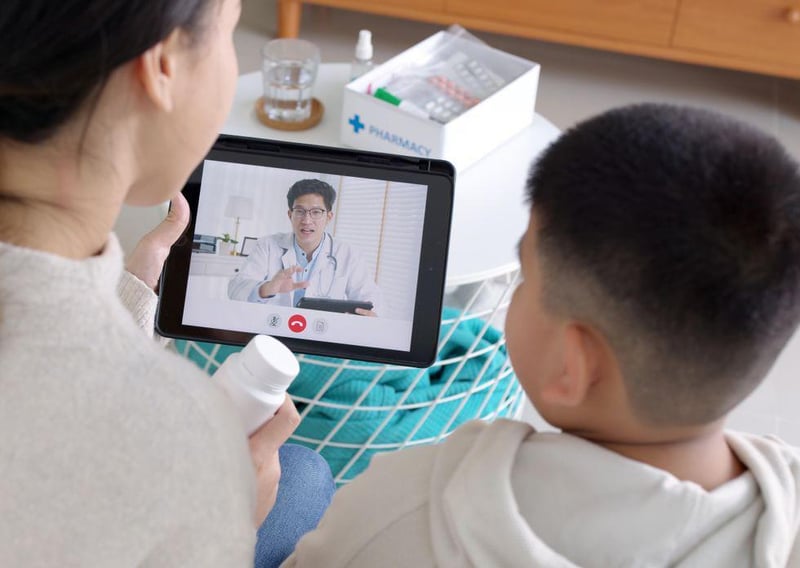Manténgase sano!

- Robert Preidt
- Posted August 9, 2021
Telemedicine May Not Work for Speech, Voice Therapy
Telemedicine may fall short when it comes to people with voice and speech disorders, researchers report.
There was a significant rise in telemedicine use -- health visits using computer, tablet or smartphone video conferencing -- during the COVID-19 pandemic. And even though the pandemic "appears to be waning, telepractice popularity is here to stay," said Cara Stepp, an associate professor of speech, language, and hearing sciences at Boston University.
Stepp and her colleagues wanted to find out if five teleconferencing platforms -- Cisco Webex, Microsoft Teams, Doxy.me, VSee Messenger and Zoom -- used for telemedicine were able to capture sounds accurately enough for clinicians to assess and treat and patients with voice and speech disorders.
They discovered that many of the platforms distort sounds in an effort to eliminate background noise.
For their study, the researchers recorded voice samples from 29 patients, ages 18 to 82, with a variety of speech or voice disorders. The recordings were played back through an external speaker over the teleconferencing platforms, simulating telepractice conversations.
All of the platforms did a poor job of capturing many measurements necessary for accurate and clinically meaningful voice evaluations, the researchers said.
Pitch varied significantly on all the platforms compared to the real-life recordings, and the dynamic range of the vocal loudness was very different from live recordings.
"This was the biggest surprise for us," said study author Hasini Weerathunge. She's a graduate student fellow at Boston University's Institute for Computing and Computational Science & Engineering and a Ph.D. candidate in biomedical engineering who does research in Stepp's lab.
Overall, "Microsoft Teams performed the best, in that all our voice measures were the least affected in that platform," Weerathunge said in a university news release.
The findings, published recently in the Journal of Speech, Language and Hearing Research, suggest that voice and speech therapists should be cautious when using telemedicine, according to the researchers.
"This work is likely to have substantial impact on clinical practice, providing crucial information about the effects of these telepractice platforms on clinical voice evaluations," Stepp said in the release.
More information
The U.S. National Institute on Deafness and Other Communication Disorders has more about voice, speech and language.
SOURCE: Boston University, news release, July 30, 2021







